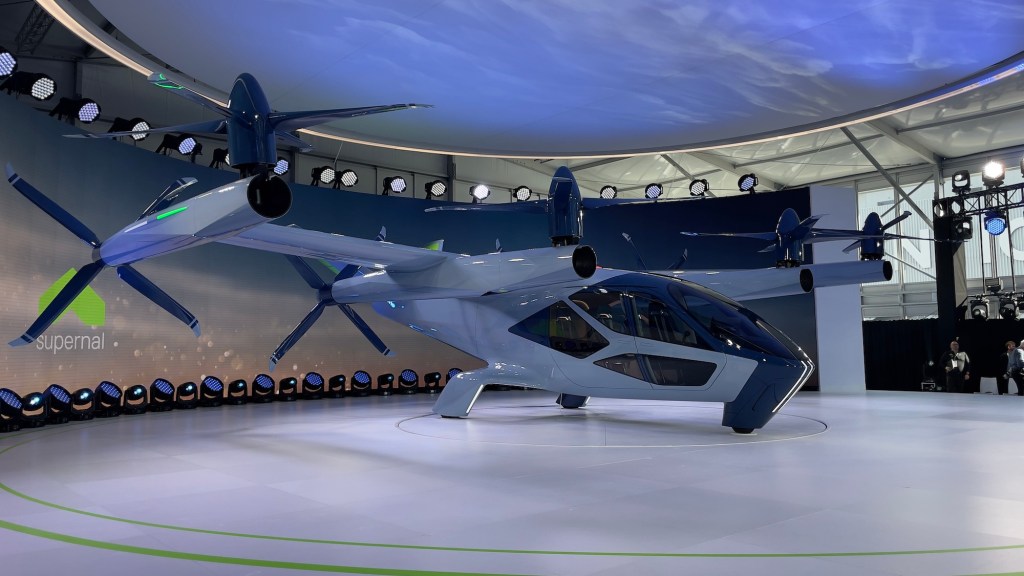Hyundai’s eVTOL Startup Supernal Halts Progress Amid Leadership Shakeup

Supernal, Hyundai’s electric air taxi venture, has put a temporary hold on its aircraft program following a turbulent period marked by layoffs and the resignations of both its CEO and CTO, according to sources familiar with the company.
Leadership Upheaval and Project Pause
The recent shakeup comes as Supernal was struggling to advance its test vehicle program. The first flight of its technology demonstrator took place earlier this year, but the company was still working toward achieving its first untethered test flight before hitting the pause button. Previously, Supernal aimed to roll out commercial air taxi services as early as 2028.
Last week, Supernal publicly announced the exit of CEO Jaiwon Shin. CTO David McBride has also left, according to insiders. Reports confirm both the pause of the flight program and the CTO's departure. When asked about the implications for the service launch, Supernal noted that newly appointed leaders will evaluate and adjust the development timeline. The company declined to provide details regarding McBride’s departure.
Industry Turbulence and Supernal’s Struggles
Supernal’s difficulties occur at a time of flux for the electric air taxi industry. While some competitors, such as Joby (backed by Toyota), have made progress through funding and partnerships, others, including Lilium, have faced bankruptcy.
Formed as a spinoff from Hyundai Group in 2021, Supernal faced multiple setbacks in 2024 and 2025. Earlier this summer, the startup laid off dozens of employees leading up to this leadership turnover. Last year, Supernal abruptly shut down its Washington, D.C. headquarters, moving operations to California.
In the interim, David Rottblatt, Supernal’s senior business development director, is overseeing operations as interim COO. Hyundai Group plans to appoint business operations experts to guide its Urban Air Mobility (UAM) unit into a new phase of growth.
Promises and Delays
Supernal’s former CEO had long promised a demonstration flight. At CES 2024, the company showcased a larger prototype, though not operational. By August, CTO McBride indicated that the forthcoming test flight would prove Supernal’s aircraft development capabilities. The pause comes despite intentions to commercialize by 2028 and reflects uncertainty in this emerging transportation sector.
Recurring Challenges for Hyundai’s Advanced Mobility
This isn’t the first time Hyundai’s futuristic bets have encountered obstacles. In 2024, the conglomerate took full control of Motional—an autonomous vehicle startup—after Aptiv, its partner, stopped funding the joint venture. The move led to a sweeping restructuring, large-scale layoffs, and the eventual departure of Motional’s CEO, illustrating the volatility and challenges facing new mobility technologies.
Deep Founder Analysis
Why it matters
This turn of events signals how even major corporate-backed startups are vulnerable in the high-risk, capital-intensive world of advanced mobility. For founders, it's a reminder that strong leadership and market timing are as critical as technical innovation. The Supernal story reflects broader shifts—where traditional automakers are reevaluating bets on air mobility amid economic and technological headwinds.
Risks & opportunities
One risk is reduced investor confidence in the urban air mobility (UAM) sector as timelines slip and leadership turns over. However, there’s also the opportunity for leaner, more focused teams (either spinouts or new entrants) to fill gaps as large players falter. The shakeup could inspire new strategic partnerships and pave the way for mergers or acquisitions, similar to how startups in related industries—like autonomous vehicles—have survived by pivoting or joining forces.
Startup idea or application
An actionable startup concept inspired by this situation: Create a B2B platform for plug-and-play eVTOL component certification and rapid prototyping. With so many teams struggling to build both technology and compliance from scratch, a specialist company could dramatically shorten time-to-flight for the next wave of UAM disruptors. This platform could offer standardized avionics, batteries, and regulatory documentation, addressing one of the key bottlenecks faced by Supernal and its competitors.
eVTOL Urban Air Mobility Hyundai Leadership Startups
Visit Deep Founder to learn how to start your own startup, validate your idea, and build it from scratch.
📚 Read more articles in our Deep Founder blog.
For further insight into how transportation startups navigate market pivots and major leadership changes, check our article on Waymo Expands Robotaxi Testing.

Comments ()